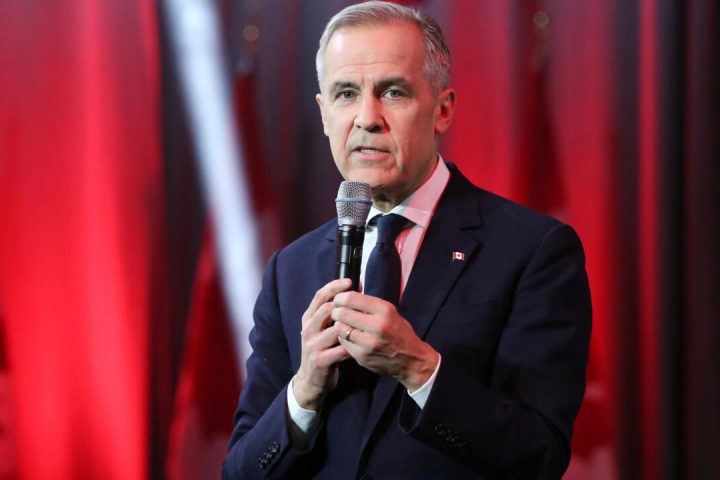Like many Nigerians, I was absolutely delighted to read Dr Yemi Balogun’s “Power Management: The Lesson TCN Needs from NAFDAC” published widely in recent days in both traditional and social media. Dr Balogun’s thesis is that regulatory agency officials and other Nigerian government officials should see themselves as private sector business promoters and partners rather than their rivals determined to stop private sector operators by all means possible. Therefore, regulatory agency officers and other government officials should learn from the National Agency for Food and Drug Administration and Control (NAFDAC) during the glorious days of Professor Dora Akunyili as its Director General who always overruled her subordinates anytime they wielded the sledgehammer against pharmaceutical companies and others which erred innocently or showed serious signs of rectitude.
READ ALSO: TCN Fails To Reconnect Aba Power After Collecting N120m
Join our WhatsApp ChannelProfessor Akunyili’s compassionate interventions saw pharmaceutical, food, and drug businesses grow in leaps and bounds, hence the unprecedented 50th birthday party they organized for her in Lagos in July, 2004. The immediate context of Dr Balogun’s article is the threat by the Transmission Company of Nigeria (TCN) to remove nine electricity distribution companies and three generation firms from the national network for owing various amounts to Federal Government establishments in the power sector where they offer ancillary services.
The TCN has boasted that it would not mind if its action brings the whole nation into darkness so long as it achieves its objective of what Dr Edmund Eje, the TCN executive director responsible for market operations, called bringing discipline into the Nigerian electricity supply industry (NESI). Dr Eje seems to be one of the government officers who do not care about the severe consequences of their actions for national security, the economy, and Nigeria’s political development. As my friend in the Department of Mass Communication at the University of Jos reminded me recently, such reckless behaviour is akin to the behaviour of journalists who belong to the school of “publish and be damned” rather than the school of those who believe in responsible journalism and, therefore, weigh the likely impact of every story or article before it is published.
Dr Eje’s actions are foreboding enough. He recommended on April 19, 2023, to the Transmission Company of Nigeria Managin Director, Engineer Sule Ahmed Abdulazeez, to disconnect Aba Power Limited from the transmission network with immediate effect for owing N869m to Federal Government agencies providing ancillary services in the power sector. The TCN leadership accepted the recommendation and acted swiftly. The action was surprising because the TCN had the same day written to Aba Power and given it 30 working days to pay for the N869m debt. By accepting and implementing the recommendation without asking necessary questions from the Market Operator, which is a unit under it, the TCN enthusiastically violated its own decision. As some commentators have noted, the TCN and the Market Operator were so much in a hurry to completely shut down the Aba Power operations that they did not even inform the electricity distribution company of their imminent action, as required by the 2010 Nigerian Electricity Industry Market Rules.
Dr Balogun has advised Nigerian public servants, including civil servants, to borrow a leaf from Akunyili’s NAFDAC and see themselves as promoters of private sector businesses rather than their competitors. This is, of course, excellent counsel. In the rest of this article, Nigerian public servants will be advised to develop the mindset of their Chinese counterparts, who have played a critical role in China’s rapid emergence as the world’s second-biggest economy. With a population of 200 million and dwindling employment and business opportunities for the young in a country known for youth bulge, the only way Nigeria can make reasonable progress and head off an impending social catastrophe is to learn and adopt the ways of such fast developing places as China, Singapore, Hon Kong, Taiwan, Malaysia and South Korea, the famous Asian Tigers.
In his excellent 2010 book entitled The China Development Strategy: Harnessing the Power of the World’s Fastest-growing Economy, Edward Tse, chairman of the world-famous consulting company known as Booz and Co, points out that civil servants in China have been trained to have the consciousness of businessmen. They know what entrepreneurs, both local and international, want; they go out of their way to not only meet but also exceed the demands and expectations of these businessmen and women.
In a highly informative article published under the title “What the West Misunderstands About Power in China in the November 10, 2022, issue of the highly intellectual magazine, Noemer, Dr Xiao Ma, the brilliant political science professor at Peking University, informs the world that there are five layers of government in China, and each is fairly autonomous in its development programmes, contrary to the thinking in the West and elsewhere in the world that the whole country is a bureaucratic monotholic. At the national level, there are 31 province-level regions, followed by 333 municipalities, which are followed by 2,800 counties, then finally more than 40,000 townships. A major criterion for promoting bureaucrats from one level to another is the quantum of investment they are able to attract to their places. This is a major secret of China’s unprecedented economic rise.
In contrast, Nigerian government officials, including public servants, are not incentivized to attract investments to their places. To worsen the situation, Nigerian government officials go out of their way to frustrate investors, including foreign ones, who are unable to meet their personal greed. In his highly praised 2014 book, Political Order and Political Decay: From the Industrial Revolution to the Globalization of Democracy, Francis Fukuyama, one of the most influential thinkers in the world today, cites Nigeria as a perfect example of a country with immense potential but run down by a generation driven by unimaginable greed. He tells the story of how a German married a Nigerian lady and set up a soya beans factory in Nigeria was frustrated by not just the business but also the country by government officials out of greed. The chairman of the local government where the factory was located was making incessant demands for both official and unofficial payments. He reported the case to the divisional police officer whose need became worse than that of the local government chair. When the state police commissioner knew of the factory, his demand became outlandish. And when the state governor became aware of the business, his demand was the worst.
Unable to pay these officials and still remain in business, the German and his Nigerian wife closed down the factory and left the country. All employees were thrown into the labour market. The same fate befell suppliers. The soya products disappeared from the market. Revenue to the government generated from personal income tax and corporate tax paid by the company ended. All this was because of greed by government officials.
There is no evidence that TCN officials are demanding any bribes or gratification from electricity distribution and generation companies. But the net effect of their actions on GenCos and DisCos produces exactly the same result as the corrupt Nigerian officials demanding so much from entrepreneurs. TCN officials require a new mindset if Nigeria is to get the power sector right.
Professor Barde teaches international management in the UK and is currently on holiday in Abuja.


















Follow Us